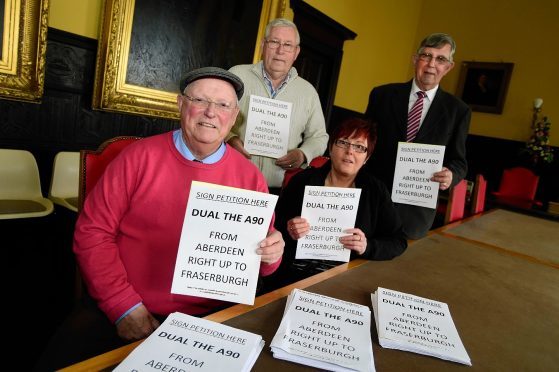A north-east councillor has called on people in Fraserburgh to make their voices heard on plans to reintroduce the railway line to the town.
The debate on rail links between Aberdeen and Fraserburgh continued yesterday as councillors formally weighed in on a study by Nestrans.
The regional transport partnership is considering major investment on better links between the city and nearby towns, andlast month called for a “hybrid package” of both road and rail upgrades to be investigated.
And yesterday, members of the Banff and Buchan area committee got the chance to give their feedback, which will be reported back to the local authority’s infrastructure services committee.
Fraserburgh councillor Ian Tait used the opportunity to call for people to support an ongoing petition in support of dualling of the A90 to Fraserburgh rather than the rail links, despite colleagues branding his scheme as “pie in the sky”.
“I just do not think both can be done,” Mr Tait said.
“There is no doubt in my mind that dualling is the better option and not one constituent has said to me that they want rail. Fraserburgh needs good, strong regeneration and therefore we need good, strong transport links.
“The only way now we’re going to get Fraserburgh included in this scheme is people power.”
Fellow Fraserburgh councillors Brian Topping and Michael Watt, meanwhile, have backed the return of rail.
Mr Topping argued a rail service from the town to Aberdeen would “take the heavy traffic off the roads”.
Mr Watt added that the north-east was “way behind”.
“Public transport is the future,” he said.
“I would love dualling to Macduff and Fraserburgh, but that’s pie in the sky.”
Currently, both road and rail options are still being considered.
These include spending £113million dualling the A90 between Ellon and the Toll of Birness, and investing up to £260million to bring back a “heavy rail service” between Dyce and Ellon.
However, Nestrans’ appraisal report makes it clear investing in a dual carriageway north of the Toll of Birness junction would be too expensive in the short or medium term.
